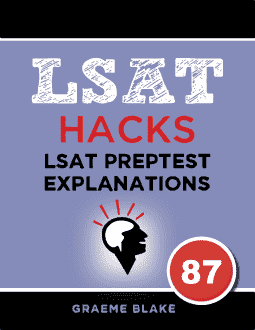QUESTION TEXT: Some literary theorists argue that since literary works…
QUESTION TYPE: Role in Argument
CONCLUSION: Some literary theorists argue against a viewpoint they themselves adopt.
REASONING: Some literary theorists say that aesthetic value cannot be assigned to literary works because they are expressions of ideology. But these theorists view some works as more interesting or successful in expressing their ideology.
ANALYSIS: Here it will be important to keep track of who is making which arguments. The structure is actually simple when you break it down. The author is basically saying “These people think X is naive. But they also do X. So they are guilty of the thing they say is wrong.”
These literary theorists believe that it’s naive to view works as embodying aesthetic value. The author’s conclusion is that the literary theorists actually believe the idea they are trying to refute, and the author supports this by pointing out that these literary theorists assign aesthetic value to these works. Note that the author never argues that the theorists’ argument is wrong, only that they are guilty of it themselves.
___________
- This conclusion is actually the theorists’ conclusion, not the authors. The claim in question is supporting the author’s conclusion.
- The author doesn’t actually argue against the theorists’ argument. And they certainly don’t use the claim in the question to refute the idea.
- The claim in question is not itself a conclusion, but is the support for the author’s conclusion.
- CORRECT. The author uses this claim to support the conclusion that the theorists are exhibiting the behaviour they were criticizing.
- The author does not try to refute the claim that literary works are expressions of ideology.
Recap: The question begins with “Some literary theorists argue that since literary works”. It is a Role in Argument question. Learn more about LSAT Role questions in our guide to LSAT Logical Reasoning question types.


Leave a Reply